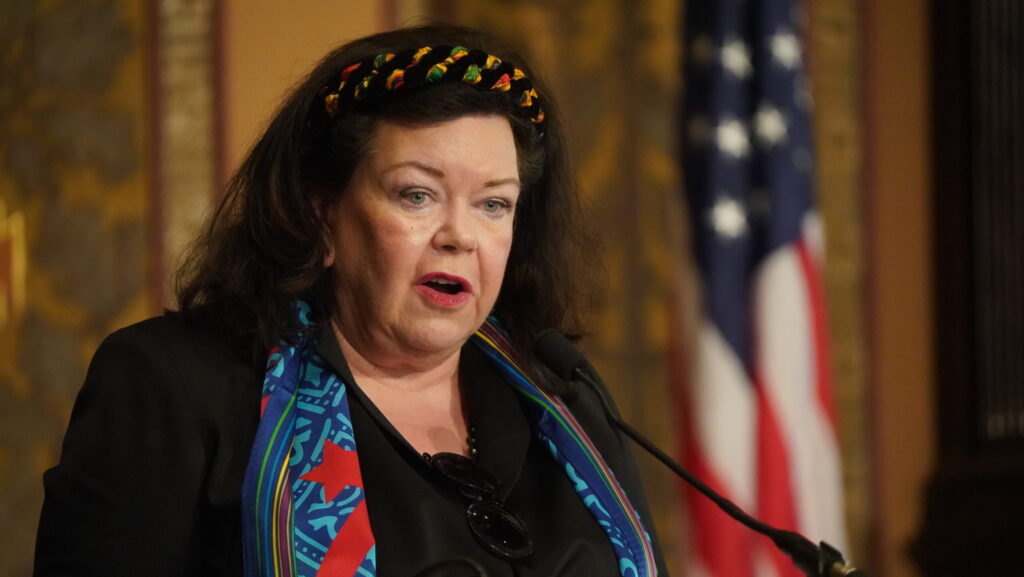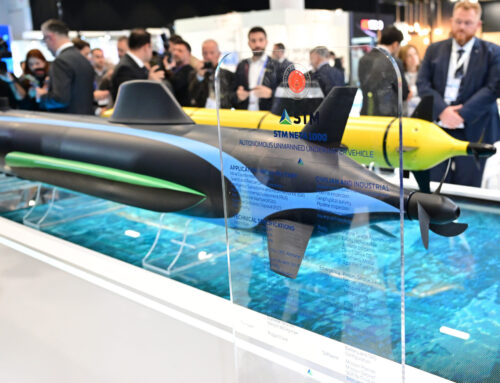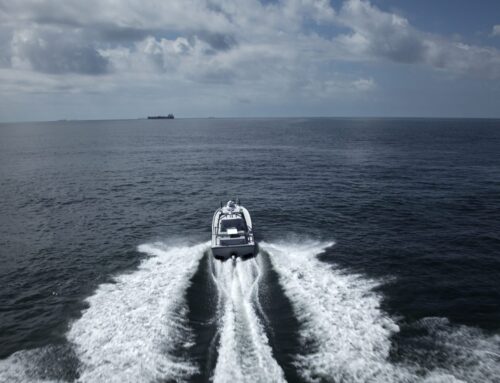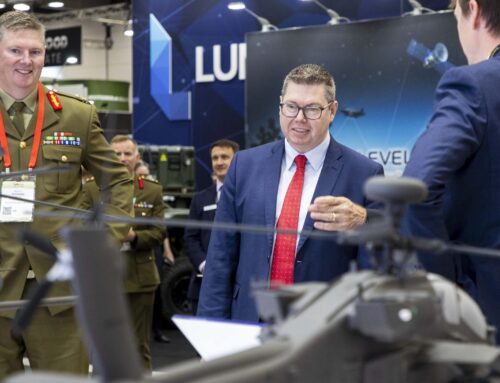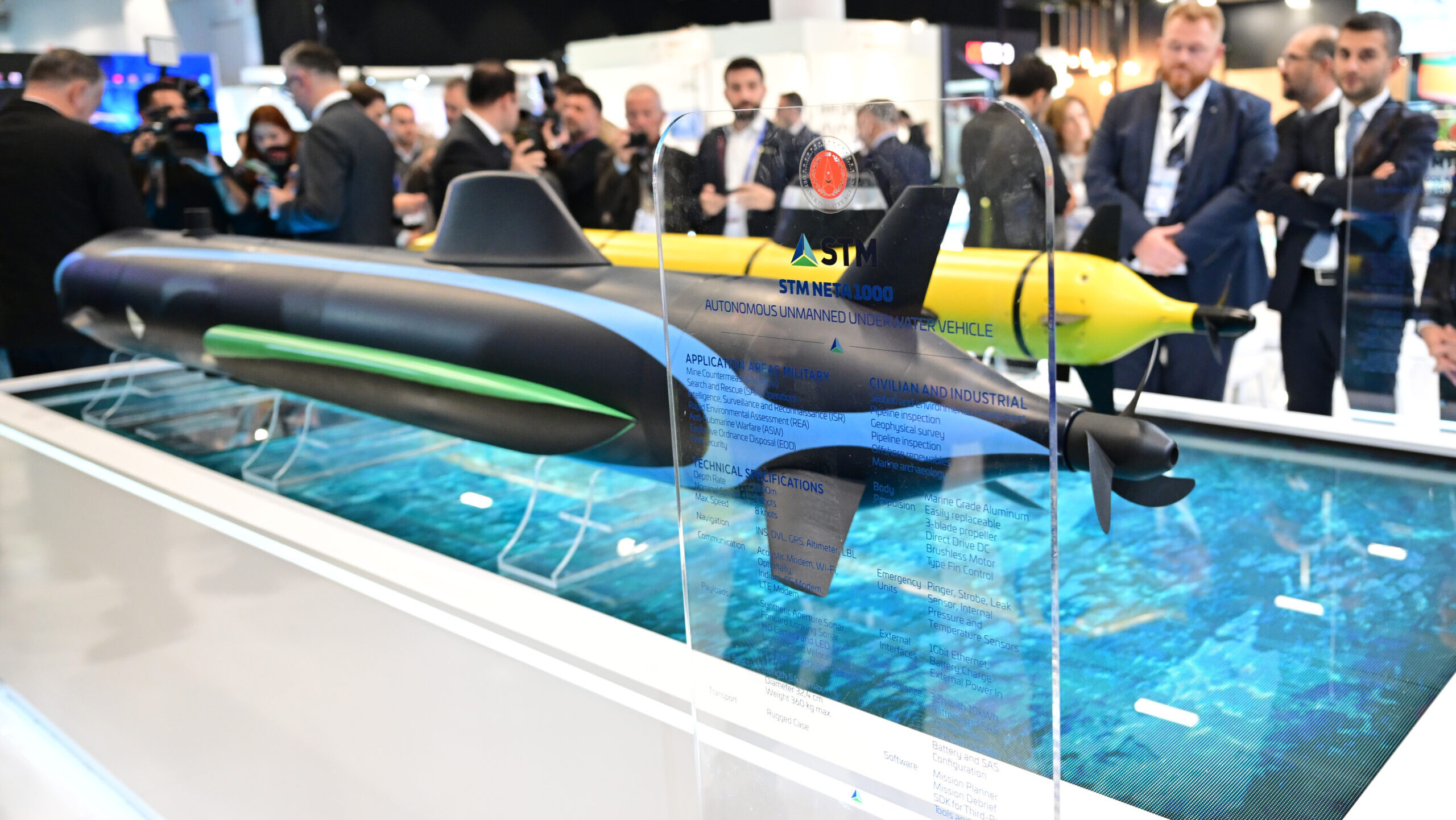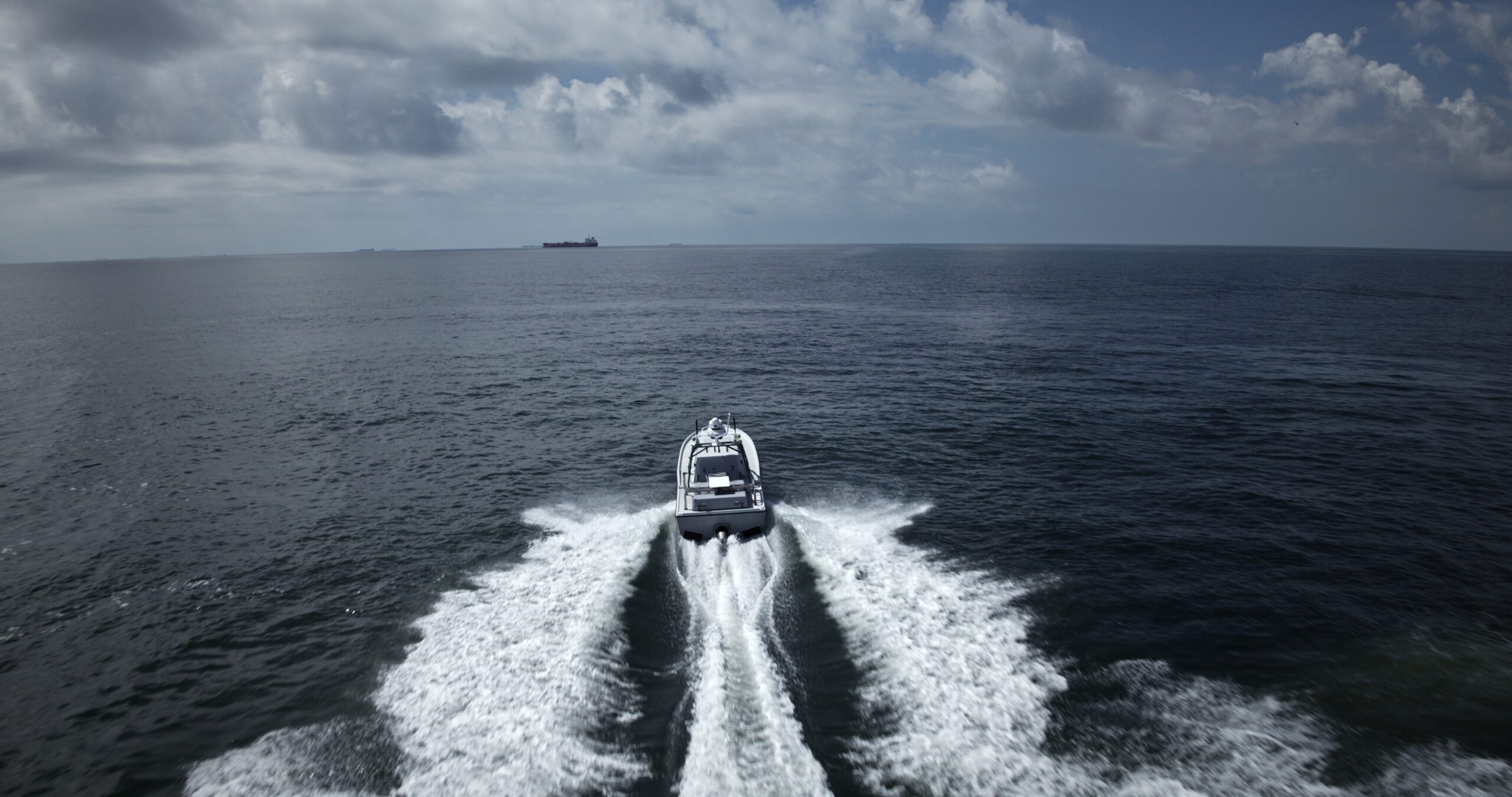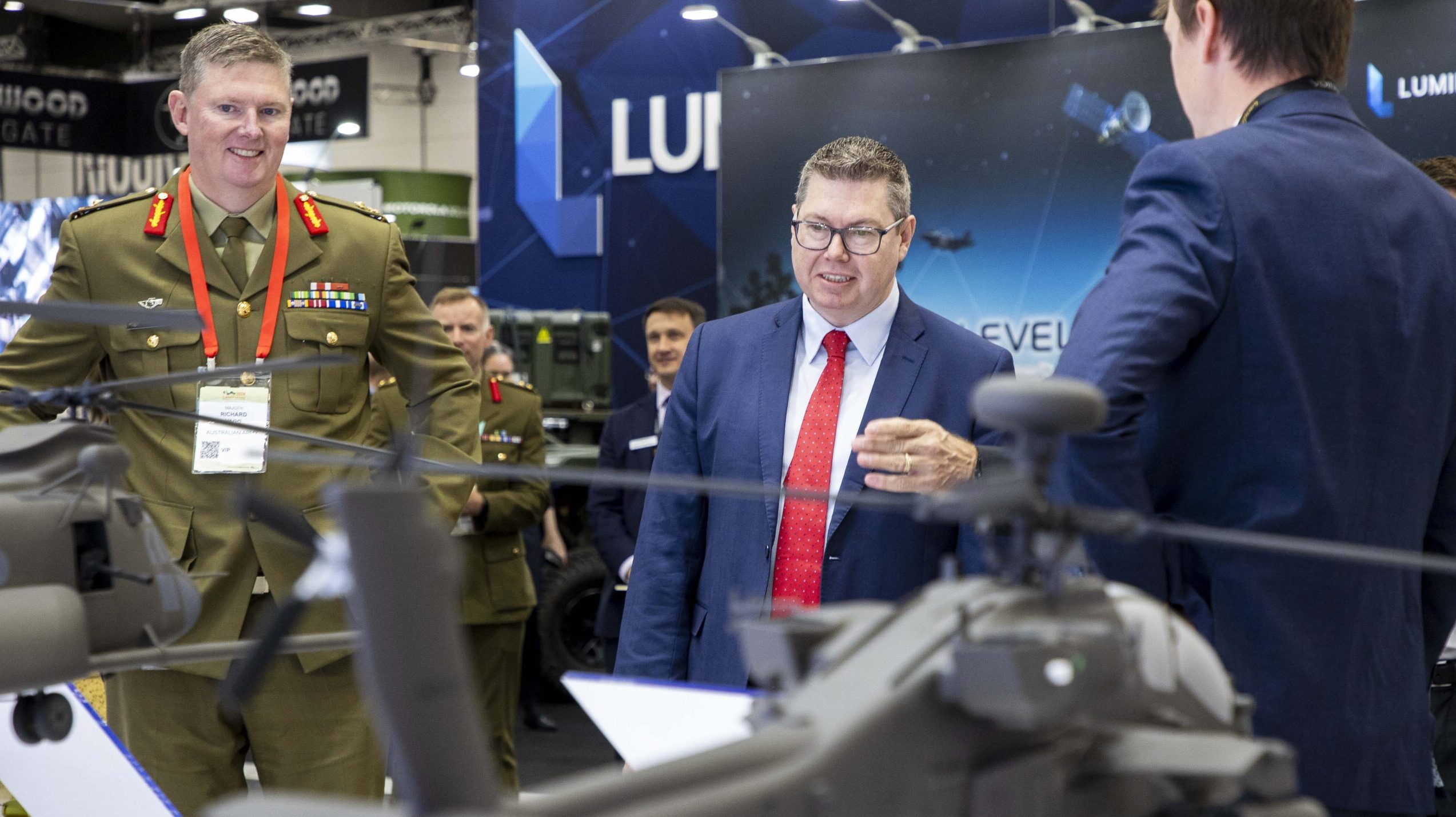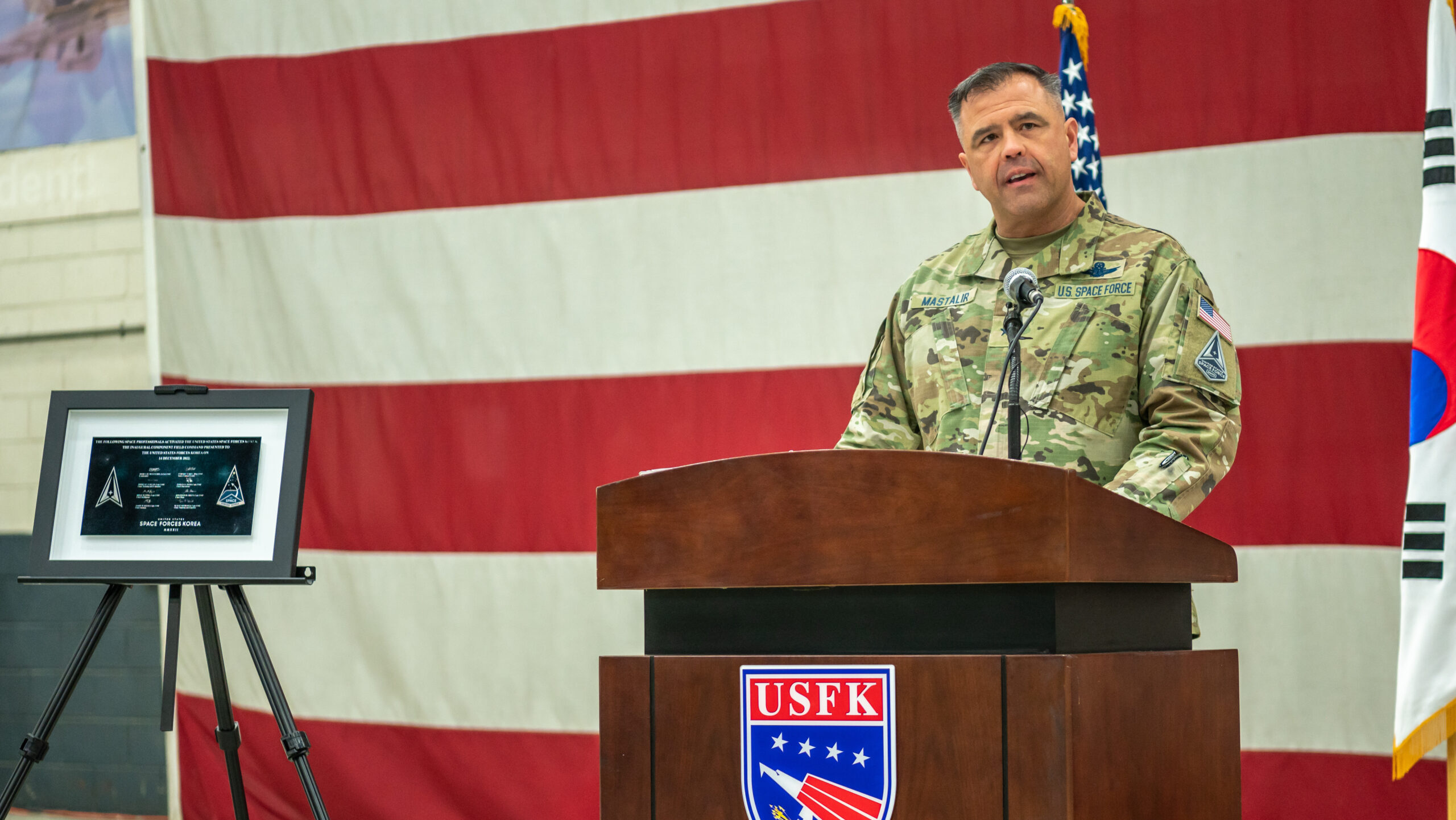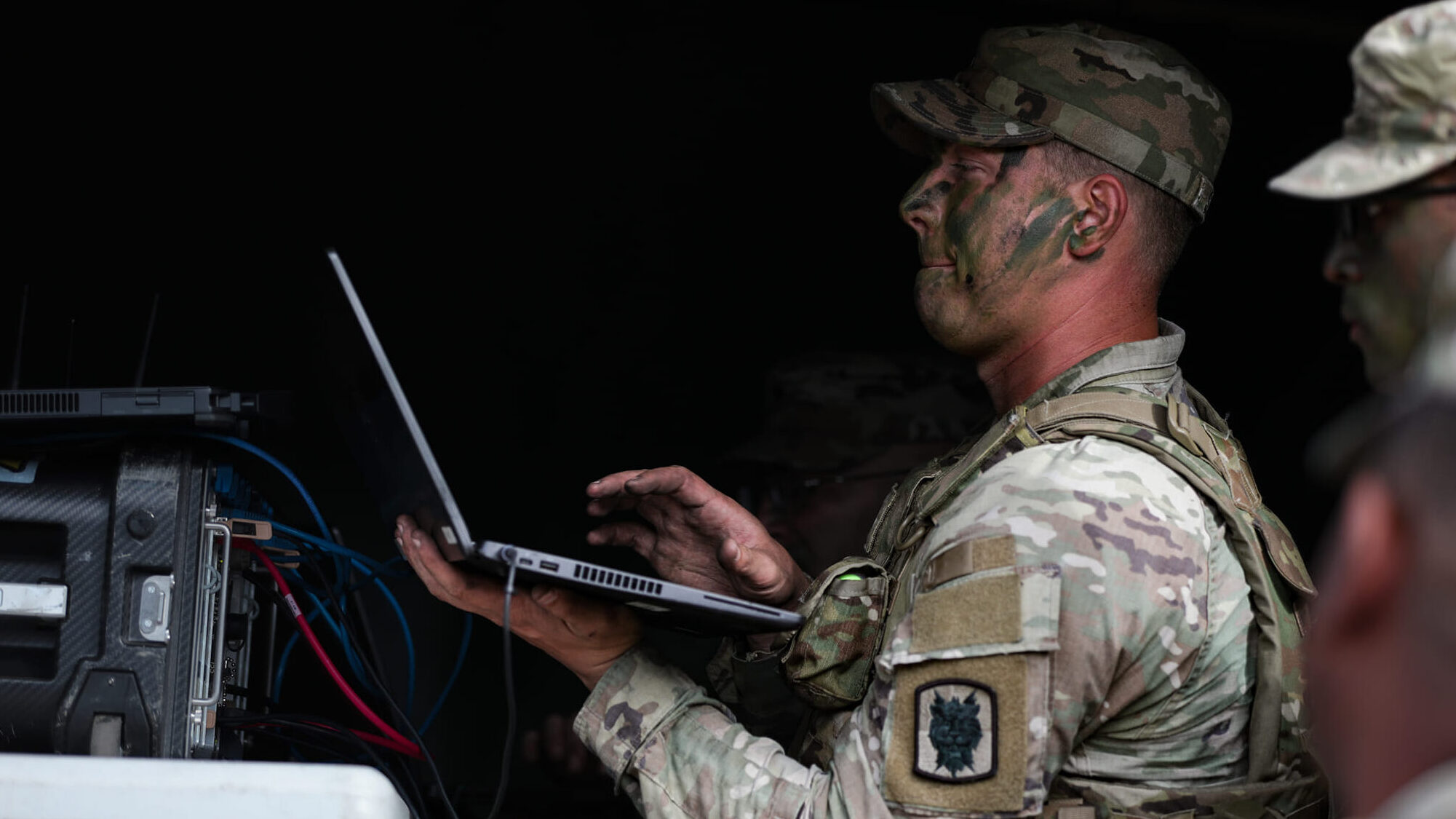Dame Karen Pierce, Ambassador of the United Kingdom to the United States, speaking at the ‘Women at the Helm’ conference at Georgetown University in Washington, DC, on March 16, 2023. (Photo by Niall Carson/PA Images via Getty Images)
Tying into this week’s NATO Summit, Breaking Defense has collected exclusive opinion pieces from key officials along the alliance’s northern border — the Arctic, where Russia and China are increasingly active. And in the United Kingdom, there may be a new government, but officials are clear: the country’s unwavering support for the NATO Alliance will never change. In this exclusive op-ed, Dame Karen Pierce, the British Ambassador to the US, argues that the Alliance at 75 is more vital than ever.
There may be a new government in the United Kingdom, but officials are clear: the country’s unwavering support for the NATO Alliance will never change. In this exclusive op-ed, Dame Karen Pierce, the British Ambassador to the US, argues that the Alliance at 75 is more vital than ever.
Winston Churchill once said: “There is only one thing worse than fighting with allies, and that is fighting without them.”
And as I sit here in my office at the British Embassy in Washington, watching the NATO flag flying next to the Union flag above our gate as world leaders gather for the NATO Summit, those words seem more relevant than ever.
Just over 75 years ago, there was a similar gathering in DC, when the Washington Treaty was signed by the 12 founding members, including the UK. A Labour government — the same party which, as of last week’s elections, is now leading the UK — helped formulate the document that became the basis of the North Atlantic Treaty Organization.
As Treaties go, it is short, containing only 14 articles, and is above all about defense and freedom, of open societies and of democratic peoples. Despite changes in the global security environment these themes have resonated for the subsequent 75 years, and the articles have never needed to be modified — and it these founding principles that contribute to the security of a billion of us across the Alliance today.
MORE FROM THIS SERIES OF EXCLUSIVE OP-EDS:
Canadian Defence Minister: Our Commitment to NATO is growing in Europe and the Arctic
Finnish defense chief: Finland is dedicated to NATO’s Northern, Baltic needs
Norway’s Chief of Defence: Allies are more than friends, in every direction
The UK is proud to be a founding member and a leading NATO nation. Our commitment to the Alliance in terms of personnel, capabilities and leadership demonstrates the importance we place on NATO as the framework for our security and that of the wider Euro-Atlantic region. We are proud of our role in the creation of the Alliance, while also focused on helping lead the evolution of the Alliance to meet changing threats.
The Alliance’s Supreme Allied Commander is American, but the Deputy Commander is always British – ever since Eisenhower and Montgomery. Our nuclear deterrent has been committed to NATO for over 50 years, and the UK leads the NATO Allied Rapid Reaction Corps from its base in Gloucester, as well as the MARCOM (Maritime Command) from Northwood, and has deputy responsibilities for AIRCOM and soon to be LANDCOM too. We hold the deputy positions right now at STRIKFOR NATO (Portugal) and at Joint Force Command Norfolk (Virginia, USA).
At the taskforce level, we lead NATO’s Very High Readiness Joint Task Force, which was created after Russia’s annexation of Crimea in 2014 and deployed for the first time for collective defense of the Alliance after Putin’s full-fledged invasion of Ukraine in 2022.
We are also the lead for the Enhanced Forward Presence battlegroup in Estonia and contribute to every single NATO mission and operation. A total of 90 percent of our Armed Forces are committed to the Alliance.
The UK’s leadership of the Joint Expeditionary Force (JEF) is another example of this commitment. Established ten years ago at the 2014 NATO Summit in Wales, the JEF was designed to bring together existing groups of nations that already cooperate with each other – because they are neighbors or share close historical military ties – to develop training, exercising, doctrine and improve military interoperability. It is a coalition of like-minded Northern European nations[1], which draws on collective experience, sharing knowledge, skills, and resources to strengthen deterrence and defense in northern Europe. The JEF has become increasingly important following the illegal Russian invasion of Ukraine, and the addition of two highly capable military allies into the NATO alliance in Finland and Sweden.
The UK is the “framework nation” and provides command and control through its deployable Standing Joint Force Headquarters in Northwood, Northwest London. The JEF has been fully operational since 2018 and has undertaken a range of military tasks since then, principally focused on Baltic security. The JEF is specifically designed to be complementary to NATO, but with increased flexibility, adaptability and responsiveness at its core. It does not require consensus to conduct operations or deploy forces, which means it can act as a “first responder” to crises in the region as they arise. With an expanded NATO/Russia northern border, a robust deterrence posture and the ability to respond quickly will only be more important as we continue to deal with threats to our security from President Putin and elsewhere.
The Washington Summit comes at a turning point for European security. The world is the most dangerous it has been since the end of the Cold War. There is a war in Europe and our adversaries are aligning to challenge the international order that has kept us safe, secure and prosperous for the last 75 years. Thankfully NATO is adapting. At 75 years young, the political Alliance is bigger, stronger, more united and more engaged in the world than ever before. A decade on from the historic commitment for Allies to spend 2 percent of GDP on defense, 23 nations have met that target, and Europe’s defense spending now averages above 2 percent. The UK is going further: increasing defense spending to 2.5 percent of GDP, the biggest strengthening of our national defense in a generation.
NATO is the cornerstone of our defense and security and we are absolutely committed to our leadership role in ensuring NATO remains match-fit for the next 75 years. For this, we need to continue to out-compete and out-innovate our adversaries, and focus on the ever closer collaboration that makes NATO unique. This requires all Allies to commit to properly funding our collective security. The decisions we take as an Alliance in Washington this week will help to chart this course to success.
Despite Moscow’s efforts to divide us, NATO is only more united and will remain so.
The Alliance sometimes uses the hashtag NATOStrong in its social media. I believe it is, more than ever, and that together we can continue to make it stronger.
Dame Karen Pierce is the United Kingdom’s Ambassador to the United States.


